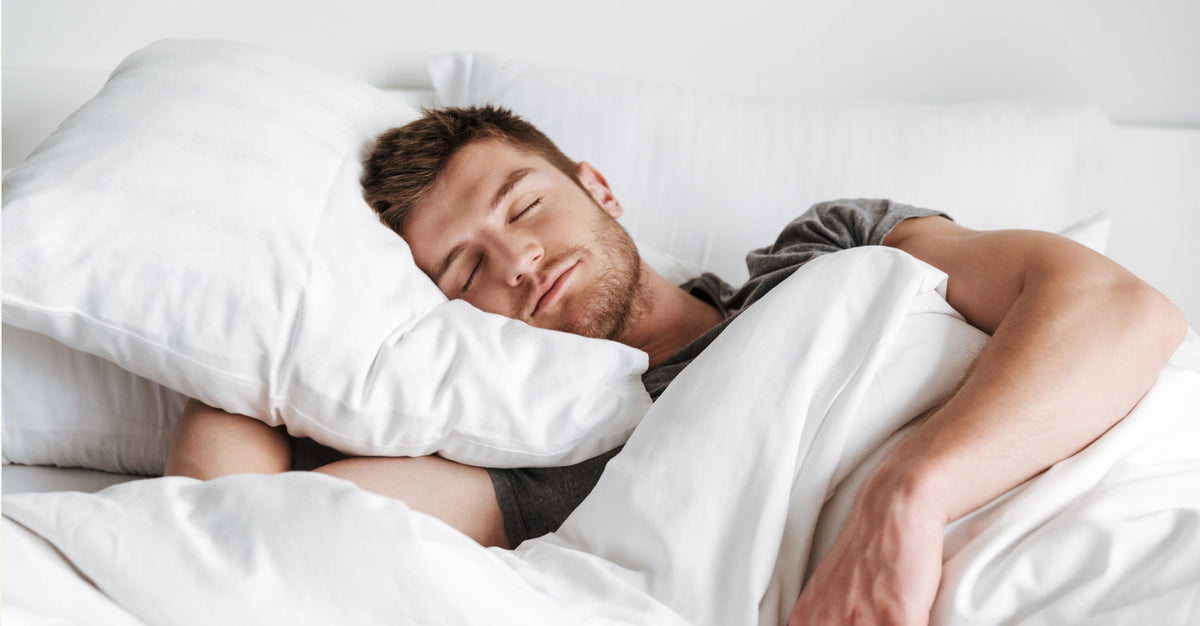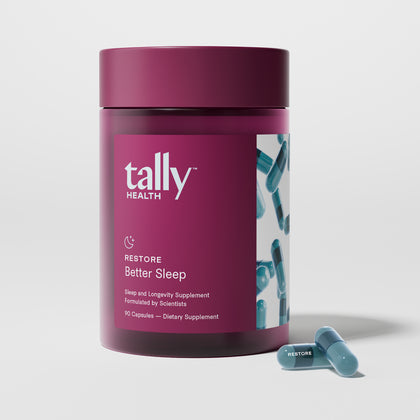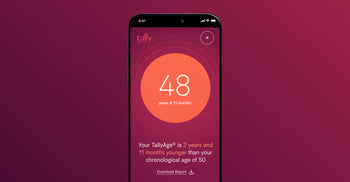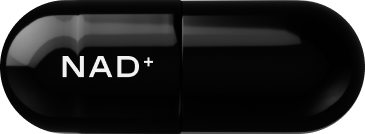

Ever wonder why you naturally feel sleepy at night and alert during the day? This predictable pattern—your circadian rhythm—is one of the most powerful regulators of your biological processes. It synchronizes the sleep-wake cycle, body temperature, hormone levels, and even metabolism, orchestrating nearly every system in the human body.
When your circadian rhythms are in sync, you wake feeling refreshed and fall asleep easily. But when they’re disrupted—through travel, shift work, or chronic sleep deprivation—your health and energy can take a serious hit.
What Is the Circadian Rhythm?

The circadian rhythm is your body’s internal clock—a roughly 24-hour cycle that governs biological rhythms like sleep-wake patterns, digestion, and cortisol secretion. It’s controlled by the suprachiasmatic nucleus (SCN), a small cluster of neurons located in the hypothalamus. The SCN acts as the master clock, coordinating signals throughout your circadian system to align with external cues such as light and temperature.
Inside each cell, clock genes (including PER, CLOCK, and BMAL1) drive the molecular circadian clock, creating oscillations that regulate molecular mechanisms underlying circadian rhythmicity. These core clock genes keep your circadian system aligned—even when external stimuli fluctuate.
How the Circadian Clock Works

The circadian clock relies on signals from your environment—known as zeitgebers, or “time givers”—to stay synchronized. The most important of these is the light-dark cycle.
When retinal ganglion cells in your eyes detect light, they signal the SCN to suppress melatonin secretion from the pineal gland, helping you stay awake. As darkness falls, melatonin levels rise, which induces sleepiness and helps you fall asleep.
Your core body temperature also follows this rhythm, dropping in the evening to promote rest and rising again before morning. This interplay of light, hormones, and temperature creates a finely tuned system that supports consistent sleep patterns and energy throughout the day.
What Causes Circadian Rhythm Disruption?

Modern life presents many challenges to our circadian regulation. Artificial light, late-night screen time, blue light exposure, and night shift work all interfere with the body clock. Traveling across multiple time zones can trigger jet lag disorder, while inconsistent sleep or irregular work schedules can cause shift work disorder.
These circadian rhythm disruptions affect far more than sleep—they influence hormone balance, metabolism, mood, and even immune function. Over time, chronic sleep deprivation and sleep disruption can contribute to neurological disorders, seasonal affective disorder, and mental health conditions.
Common Circadian Rhythm Sleep Disorders
When your circadian rhythms fall out of sync with environmental cues, circadian rhythm sleep disorders may develop. Some of the most common include:
Delayed Sleep Phase Syndrome (DSPS): A condition where the sleep phase is shifted later than normal, causing difficulty falling asleep at a typical time.
Advanced Sleep Phase Disorder: The opposite pattern—feeling sleepy too early in the evening and waking before dawn.
Shift Work Disorder: Common among night shift workers and shift workers, it leads to daytime sleepiness and fatigue due to an inverted sleep-wake schedule.
Jet Lag Disorder: Results from rapidly crossing time zones, leading to excessive sleepiness, poor sleep quality, and impaired focus.
All of these involve misalignment between the internal clock and the external cues that normally regulate circadian patterns.
How Circadian Rhythms Affect Overall Health

Your circadian system doesn’t just determine when you fall asleep—it influences nearly every biological clock in your body. The molecular clock within your tissues coordinates energy metabolism, hormone secretion, and even gene expression.
When circadian disruption becomes chronic, it can lead to downstream effects such as impaired glucose regulation, increased inflammation, and metabolic disorders. Researchers studying the molecular circadian clock have found links between clock gene mutations and altered body temperature, diurnal rhythms, and even mood regulation.
That’s why prioritizing your sleep-wake cycle is about more than rest—it’s about supporting your body’s internal clock and maintaining overall physiological balance.
How to Support a Healthy Circadian Rhythm

Maintaining consistent circadian rhythmicity comes down to reinforcing your body’s natural zeitgebers—the environmental cues that anchor your internal clock to the external world. Try these science-backed strategies:
1. Stick to a Consistent Sleep Schedule
Going to bed and waking up at the same time—even on weekends—helps stabilize your sleep-wake cycle and improve sleep quality.
2. Manage Light Exposure
Avoid blue light and artificial light before bed. In the morning, expose yourself to natural light to strengthen your circadian regulation and help reset your master clock. Aim to sleep in a dark, cool, and quiet environment.
3. Support Melatonin Secretion
Dim your lights in the evening and limit screen time to encourage pineal melatonin release. Some people benefit from light therapy or melatonin supplements when experiencing jet lag or delayed sleep phase syndrome.
4. Align Lifestyle Cues
Regular meals, physical activity, and mindful exposure to dim light at night all reinforce healthy circadian patterns and enhance sleep quality.
5. Support Cellular Health and Repair
Your body repairs and rejuvenates itself during deep sleep. Restore by Tally Health was designed to support cellular processes aligned with your circadian system, helping optimize nighttime recovery and maintain healthy circadian rhythmicity.
Night Shift Workers and Circadian Challenges

For night shift workers and those with irregular schedules, aligning the sleep-wake cycle can be especially difficult. Exposure to constant light, irregular meal times, and poor sleep environments disrupt circadian patterns and elevate core body temperature at night, making it harder to induce sleep.
Creating a dark, cool sleep environment and maintaining consistent timing—even on days off—can help reduce circadian rhythm disruption. Pairing these habits with cellular-supporting tools like Restore by Tally Health can further promote sleep quality and overall resilience against circadian stress.
The Bottom Line

Your circadian rhythm is far more than just a sleep cycle—it’s the central coordinator of biological rhythms across the human body. Keeping your circadian system aligned with external stimuli such as light, temperature, and activity is essential for optimal sleep patterns, mood, and longevity.
By understanding and supporting your body’s internal clock, you can restore balance, promote better sleep, and enhance your daytime energy—helping your biology stay in perfect rhythm.
Your circadian clock is your body’s natural timing system. Protect it by maintaining consistent routines, managing light exposure, and supporting cellular health with evidence-based tools like Restore by Tally Health to help your body align, recover, and thrive.
References
Patke et al. Molecular mechanisms and physiological importance of circadian rhythms. Nat Rev Mol Cell Biol 2020; https://doi.org/10.1038/s41580-019-0179-2
Hood and Amir. The aging clock: circadian rhythms and later life. J Clin Invest 2017; https://doi.org/10.1172/jci90328
Winterhalter et al. The circadian rhythm: A key variable in aging? Aging Cell 2024; https://doi.org/10.1111/acel.14268
Steele et al. Circadian Rhythm Sleep-Wake Disorders: a Contemporary Review of Neurobiology, Treatment, and Dysregulation in Neurodegenerative Disease. Neurotherapeutics 2021; https://doi.org/10.1007/s13311-021-01031-8
Nagayach et al. Interplay between circadian rhythm, ageing and neurodegenerative disorder. Open Biol 2025; https://doi.org/10.1098/rsob.240161
What is the circadian rhythm?
The circadian rhythm is your body’s internal clock—a roughly 24-hour cycle that governs biological rhythms like sleep-wake patterns, digestion, and cortisol secretion. It’s controlled by the suprachiasmatic nucleus (SCN), a small cluster of neurons located in the hypothalamus that coordinates signals to align with external cues such as light and temperature.
What causes circadian rhythm disruption?
Artificial light, late-night screen time, blue light exposure, and night shift work all interfere with the body clock. Traveling across multiple time zones can trigger jet lag disorder, while inconsistent sleep or irregular work schedules can cause shift work disorder. These disruptions affect hormone balance, metabolism, mood, and immune function.
How can you support a healthy circadian rhythm?
Maintaining consistent circadian rhythmicity comes down to reinforcing your body’s natural zeitgebers—the environmental cues that anchor your internal clock. Stick to a consistent sleep schedule, manage light exposure, support melatonin secretion, and align lifestyle cues like meals and activity. Restore by Tally Health can help support cellular processes aligned with your circadian system for optimal nighttime recovery.











